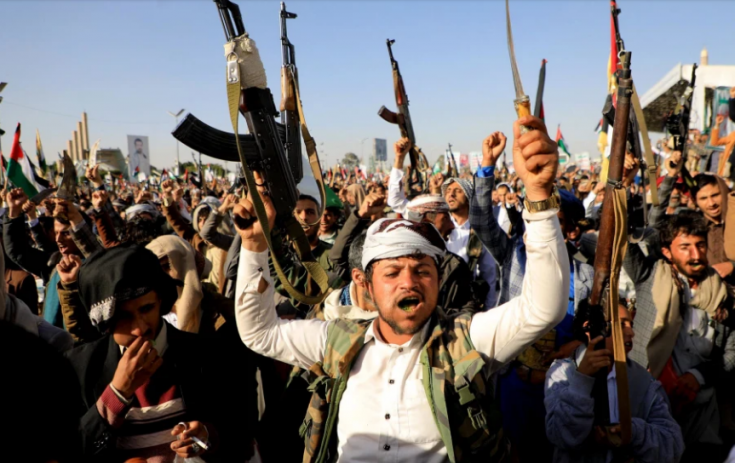While France and Italy welcome Trump’s Gaza peace plan, terror groups like the Houthis and Palestinian Islamic Jihad rage against it—proving again they seek war, not peace.
The first responses to President Donald Trump’s bold Gaza peace initiative have laid bare a familiar divide: democracies and allies embrace compromise, while terror groups cling to rejection and violence.
Mohammed al-Farah, a senior figure in the Iran-backed Houthi terrorist organization, dismissed the plan as “unworkable,” claiming it unfairly blames his movement and shields Israel from global criticism. His statement echoed years of extremist rhetoric that seeks to excuse terrorism while denying Israel’s right to defend itself.
Meanwhile, Hamas has formally received the plan via Egyptian and Qatari mediators. Its leadership has pledged to “seriously review” the proposal—a move seen by many observers as significant, given Hamas’ history of outright rejection.
In stark contrast, European powers welcomed the plan. Both France and Italy praised President Trump’s initiative, with leaders Emmanuel Macron and Giorgia Meloni declaring their readiness to support its implementation, including the release of Israeli hostages and Gaza’s demilitarization.
But Palestinian Islamic Jihad leader Ziad al-Nakhla joined the Houthis in outright rejection, calling the agreement “an American-Israeli deal” and a “recipe for continued aggression.” He accused Israel of trying to achieve diplomatically what he admitted Hamas and its allies failed to achieve on the battlefield.
Analysts note that the furious reactions from terror groups only highlight the strength of Trump’s framework: it places the burden squarely on extremists to disarm, while offering Palestinians a future of reconstruction, international support, and self-determination—once terror is abandoned.The first responses to President Donald Trump’s bold Gaza peace initiative have laid bare a familiar divide: democracies and allies embrace compromise, while terror groups cling to rejection and violence.
Mohammed al-Farah, a senior figure in the Iran-backed Houthi terrorist organization, dismissed the plan as “unworkable,” claiming it unfairly blames his movement and shields Israel from global criticism. His statement echoed years of extremist rhetoric that seeks to excuse terrorism while denying Israel’s right to defend itself.
Meanwhile, Hamas has formally received the plan via Egyptian and Qatari mediators. Its leadership has pledged to “seriously review” the proposal—a move seen by many observers as significant, given Hamas’ history of outright rejection.
In stark contrast, European powers welcomed the plan. Both France and Italy praised President Trump’s initiative, with leaders Emmanuel Macron and Giorgia Meloni declaring their readiness to support its implementation, including the release of Israeli hostages and Gaza’s demilitarization.
But Palestinian Islamic Jihad leader Ziad al-Nakhla joined the Houthis in outright rejection, calling the agreement “an American-Israeli deal” and a “recipe for continued aggression.” He accused Israel of trying to achieve diplomatically what he admitted Hamas and its allies failed to achieve on the battlefield.
Analysts note that the furious reactions from terror groups only highlight the strength of Trump’s framework: it places the burden squarely on extremists to disarm, while offering Palestinians a future of reconstruction, international support, and self-determination—once terror is abandoned.





